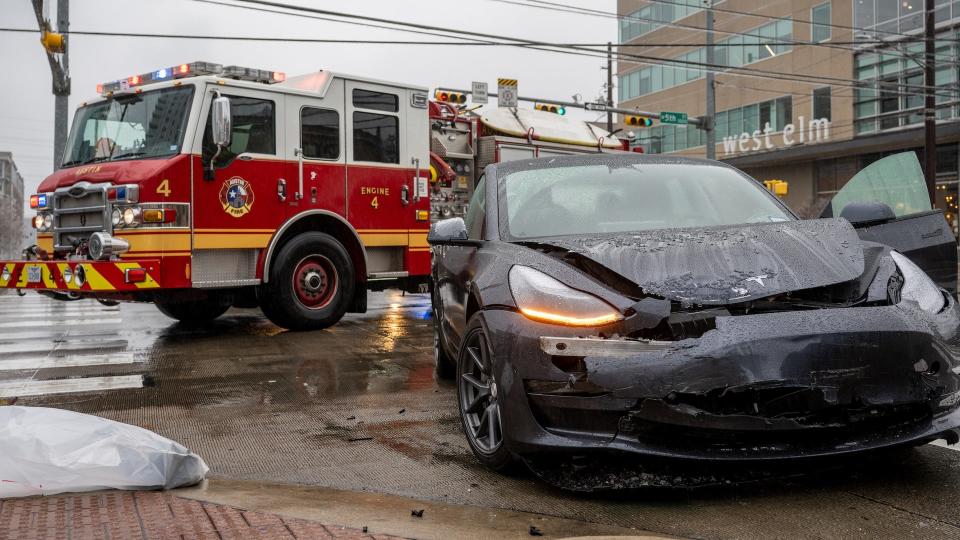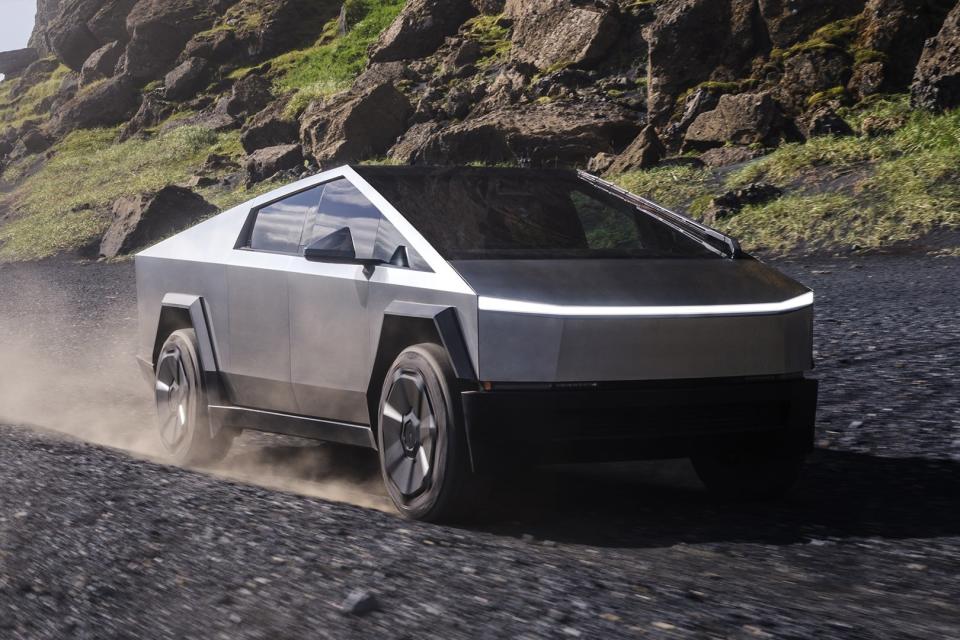Tesla Faces Fraud Investigation From DOJ, SEC Over 'Full Self-Driving' Claims

For almost a decade now, Tesla and its CEO Elon Musk have repeatedly promised that its automated driving assists like Autopilot and "Full-Self Driving Beta" are safer than humans—and on the verge of obsoleting us entirely. While Musk's projections have fallen flat for almost as long, Tesla's doublespeak has still led to sometimes fatal overconfidence in its driving tech. Now, the federal government is finally calling Tesla's bluff, as multiple regulators are reportedly looking into whether Tesla's cars are really as self-driving as Tesla claims them to be.
Speaking to "three people familiar with the matter," Reuters reports both the Department of Justice and Securities and Exchange Commission are investigating Tesla's claims over its driving automation tech. The DOJ is looking into suspected wire fraud for misleading consumers, and making them believe that its driving tech is more capable than it really is. The SEC meanwhile is gathering evidence of suspected securities fraud for deceiving investors, which the SEC has previously fined Musk for.

AP and the similar FSD are under scrutiny for the gap between what Tesla claims their capabilities are to the public versus what it tells regulators. These hands-on SAE Level 2 driving assists are advertised as being safer than a human driver, whom Tesla has suggested in the past must only remain attentive behind the wheel for legal reasons. Musk has even gone as far as removing his hands from the steering wheel in a TV interview to promote the tech's ostensible reliability.
But in its fine print, Tesla instructs users to remain engaged at all times, with hands on the wheel and eyes on the road. And while dealing with regulators, Tesla has classified its most advanced FSD tech at SAE Level 2—rather than the borderline Level 5, fully autonomous system the company implies it's on the verge of becoming. While Tesla recently rebranded FSD Beta to FSD Supervised, it did so without implementing significant functional improvement.

This inconsistent messaging has led the public to misjudge AP and FSD as more reliable than they are, leading to hundreds of crashes and at least 13 fatalities. One of the common factors identified across these crashes by the NHTSA was Tesla's lax driver monitoring, which it recalled in 2023 in its biggest recall in history. However, regulators are now concerned Tesla has made it too easy to revert to a prior software build without these upgrades, enabling drivers to continue misinformed misuse.
The federal investigations are reportedly still in their early stages, with prosecutors gathering information rather than preparing charges. Until they make further moves, it's unclear what outcomes Tesla and Musk could face (though the SEC's last win against Musk penalized him $20 million). The scope of this investigation of course is far larger and concerns something more consequential than a fraudulent Tweet—and it may leave Musk wishing for a $20 million slap on the wrist again.
Got a tip or question for the author? You can reach them here: james@thedrive.com

 Yahoo Autos
Yahoo Autos 